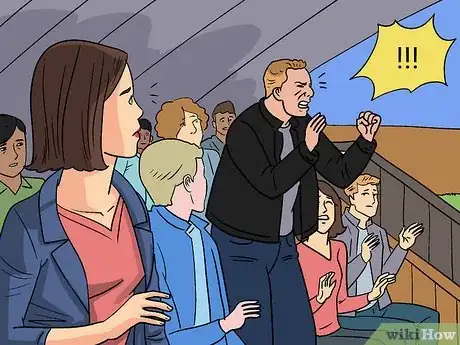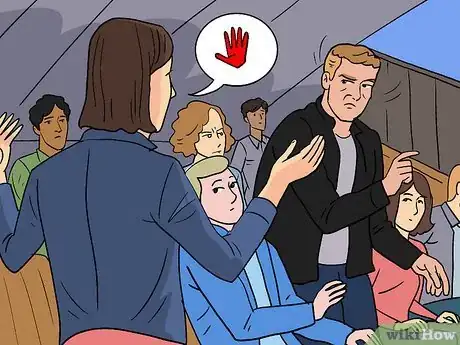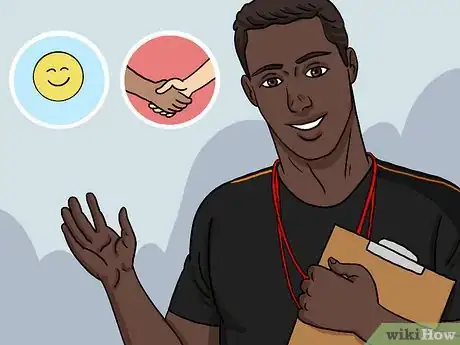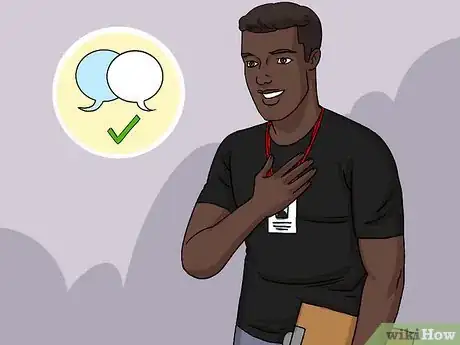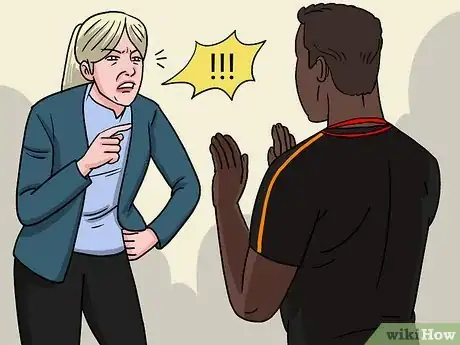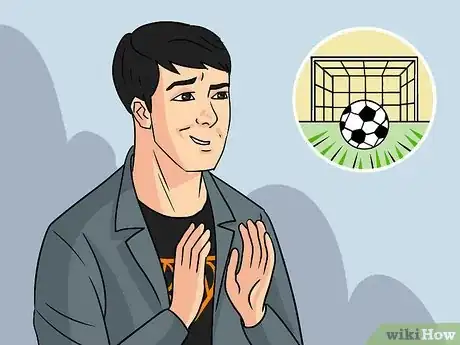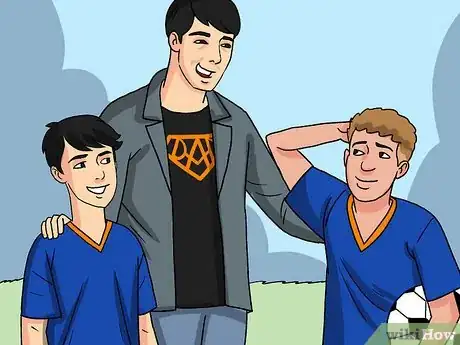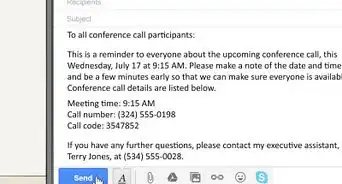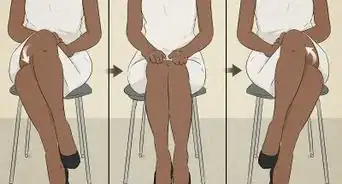This article was co-authored by wikiHow Staff. Our trained team of editors and researchers validate articles for accuracy and comprehensiveness. wikiHow's Content Management Team carefully monitors the work from our editorial staff to ensure that each article is backed by trusted research and meets our high quality standards.
There are 11 references cited in this article, which can be found at the bottom of the page.
This article has been viewed 15,301 times.
Learn more...
Playing sports is a great way for kids to make friends, have fun, and learn to win and lose gracefully. Unfortunately, some parents miss the point of kids’ sports. From the dad who barks instructions at the entire team from the sidelines to the mom who only focuses on winning, some parents just don’t exhibit good sportsmanship at their child’s games. These parents can make things less fun for everyone, from their own child to the other parents on the sidelines. Whether you’re a parent yourself or a coach, you can learn the best ways to deal with obnoxious sports parents and set a good example with your own behavior.
Steps
Dealing with Rude Parents as a Parent
-
1Avoid confronting hotheaded parents. If an adult can’t manage their own emotions at their child’s game, they’re probably not going to react in a reasonable way if you approach them. Trying to talk to someone who is worked up or angry could result in an unpleasant scene or a fight.
- If a parent on the sidelines is making mean-spirited remarks or openly criticizing the kids on the field, it’s natural to feel angry. Remind yourself that staying cool is the most mature and appropriate way to handle the situation.
-
2Politely ask an over-excited parent to tone it down. Depending on the situation, it may be okay to ask another parent to calm down a little. If someone is blocking others’ view of the field or being too loud, but doesn’t seem aggressive or angry, try approaching them and politely asking them to take it down a notch.[1]
- If someone is getting too worked up over the outcome of the match, put things into perspective by reminding them, “Hey, it’s just a game.”
- If someone is blocking your view of the field, politely say, “Excuse me, do you mind moving over? I’m trying to watch my son play, too.”
Advertisement -
3Band together with other team parents. One badly-behaved team parent can ruin things for everybody else. Talk to other parents and see if they’re also bothered by the overzealous person’s antics. If you’re in agreement that one parent is taking their enthusiasm too far, the rest of you can counterbalance the team environment by providing more positive and encouraging feedback for the players.[2]
- As a group, consider bringing up the issue with the coach if the problem parent’s behavior doesn’t improve.
-
4Find an official to deal with out-of-control behavior. If a parent on the sidelines is swearing, picking fights with other parents or otherwise acting in a very inappropriate way, find an authority figure to deal with them. They are more likely to listen to an official or police officer than another parent.[3]
-
5Stay positive, even when other parents show poor sportsmanship. Sometimes the best way to deal with a bad team parent is to provide a good example yourself. Cheer on your child’s team, praise the players for doing their best, and emphasize having fun. Avoid making critical comments or arguing with coaches and referees.[4]
Dealing with Obnoxious Parents as a Coach
-
1Head off issues with a preseason meeting. You can avoid a lot of problems by arranging a meeting with parents at the beginning of the season. Explain your coaching philosophy, your way of deciding which players spend the most time in the game, and any other policies you have. If parents know what to expect from the beginning, they’ll be less likely to get upset with you later.[5]
- Type up a summary of your coaching policies for parents to take home after the meeting.
-
2Emphasize the importance of having fun and learning good sportsmanship. As coach, your attitude has a big influence on the way parents feel about the sport and their child’s team. Make it clear to team parents that your goal is to help their kids improve their athletic skills and develop as people, not just win every game.
- When parents want to talk to you in overly competitive terms, redirect the conversation to something more positive. Say something like, “Yes, it’s too bad we lost, but I’m really proud of how Ava has been playing on defense lately. She’s really improved since the start of the season.”
-
3Encourage parents to talk to you if they have questions or concerns. Parents are less likely to get upset with you if you make a point of communicating with them throughout the season. Make sure everyone has your contact information, and emphasize that team members and their parents shouldn’t hesitate to get in touch with you.[6]
-
4Avoid talking with angry parents in the heat of the moment. If a parent raises their voice, threatens you, or otherwise fails to behave like an adult, don’t engage with them. It’s impossible to have a productive conversation with someone who is being unreasonable.[7]
- Cut an angry parent off if you have to. Say something like, “I’m not going to talk to you if you keep shouting at me. Please calm down.”
- If the parent refuses to calm down, tell them, “I think we should have this conversation another time when your emotions are under control.”
Setting a Good Example
-
1Keep an eye on your own behavior. Watching a sports game is exciting, and it can be easy to get carried away and act like an obnoxious parent yourself. Focus on setting a good example as you cheer on your child’s team. Avoid criticizing players, arguing with officials, or telling your kid what to do on the field.[8]
- Don’t try to direct the game from the sidelines, even if you think you know what the team should be doing. It’s the coach’s job to come up with strategies and direct players.
- Don’t try to live vicariously through your child. Remember that lots of kids just play sports for the fun of it and aren’t too concerned with winning.
-
2Emphasize the importance of working hard and having fun. A parent who focuses too much on winning can suck the enjoyment out of sports for their child. Instead, encourage kids to improve their skills, do their best, and enjoy the challenge of the game.[9]
-
3Cheer on the whole team. Don’t make your own child the sole focus of your attention. Cheering for the entire team emphasizes the importance of teamwork.[10]
-
4Acknowledge good plays by the other team. Respecting the opponent is an essential part of good sportsmanship. If a child on the other team scores a spectacular goal or hits a home run, don’t hesitate to applaud them.
-
5Encourage kids whose parents are overly competitive or critical. Don’t hold a parent’s rude behavior against their child – the kid probably doesn’t enjoy it, either. A bad sports parent can kill their child’s love for the game. If there’s an overzealous parent on the sidelines, do your best to encourage your child’s teammate. Cheer them on during the game, give them a high-five afterwards, or invite them to get ice cream with your child after the game. Congratulate them on how hard they played, regardless of whether they won or lost.[11]
References
- ↑ http://www.chicagonow.com/miss-mind-your-manners/2014/03/dealing-with-rude-parents-at-your-kids-sporting-events/
- ↑ http://articles.sun-sentinel.com/2010-07-07/features/sfl-fam-coaches-parents-070810_1_parents-one-s-own-child-youth-sports
- ↑ http://www.allprodad.com/confronting-crazy-sports-parents/
- ↑ https://www.psychologytoday.com/blog/coaching-and-parenting-young-athletes/201309/hey-sport-parents-dont-be-rude
- ↑ https://www.breakthroughbasketball.com/coaching/dealing-with-parents.html
- ↑ http://www.squadlocker.com/blog/how-to-deal-with-difficult-parents-as-a-coach
- ↑ http://www.basketballforcoaches.com/difficult-parents/
- ↑ http://www.scarymommy.com/the-obnoxious-sports-parent/
- ↑ https://www.theatlantic.com/education/archive/2013/10/parents-ruin-sports-for-their-kids-by-obsessing-about-winning/280442/
